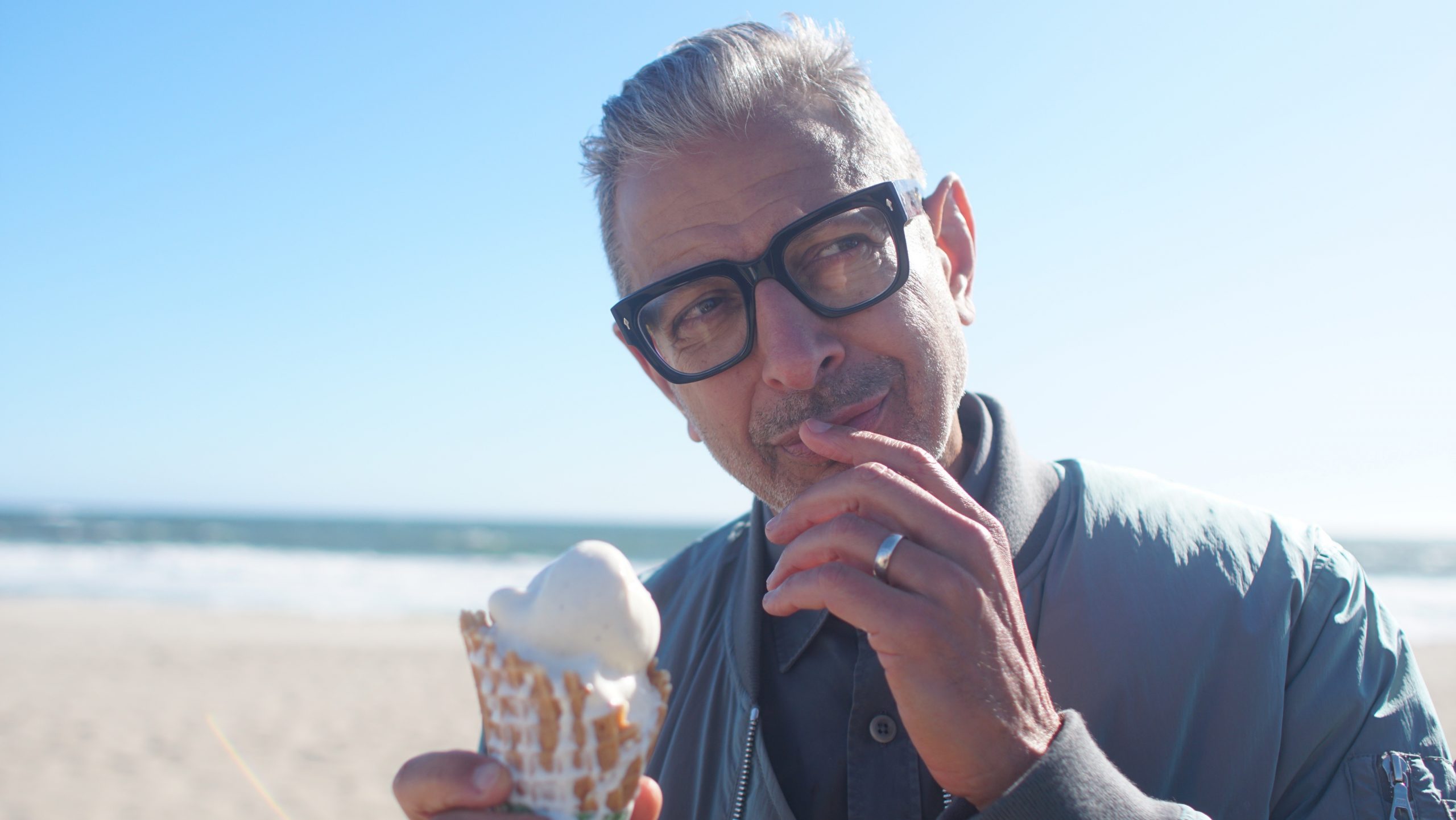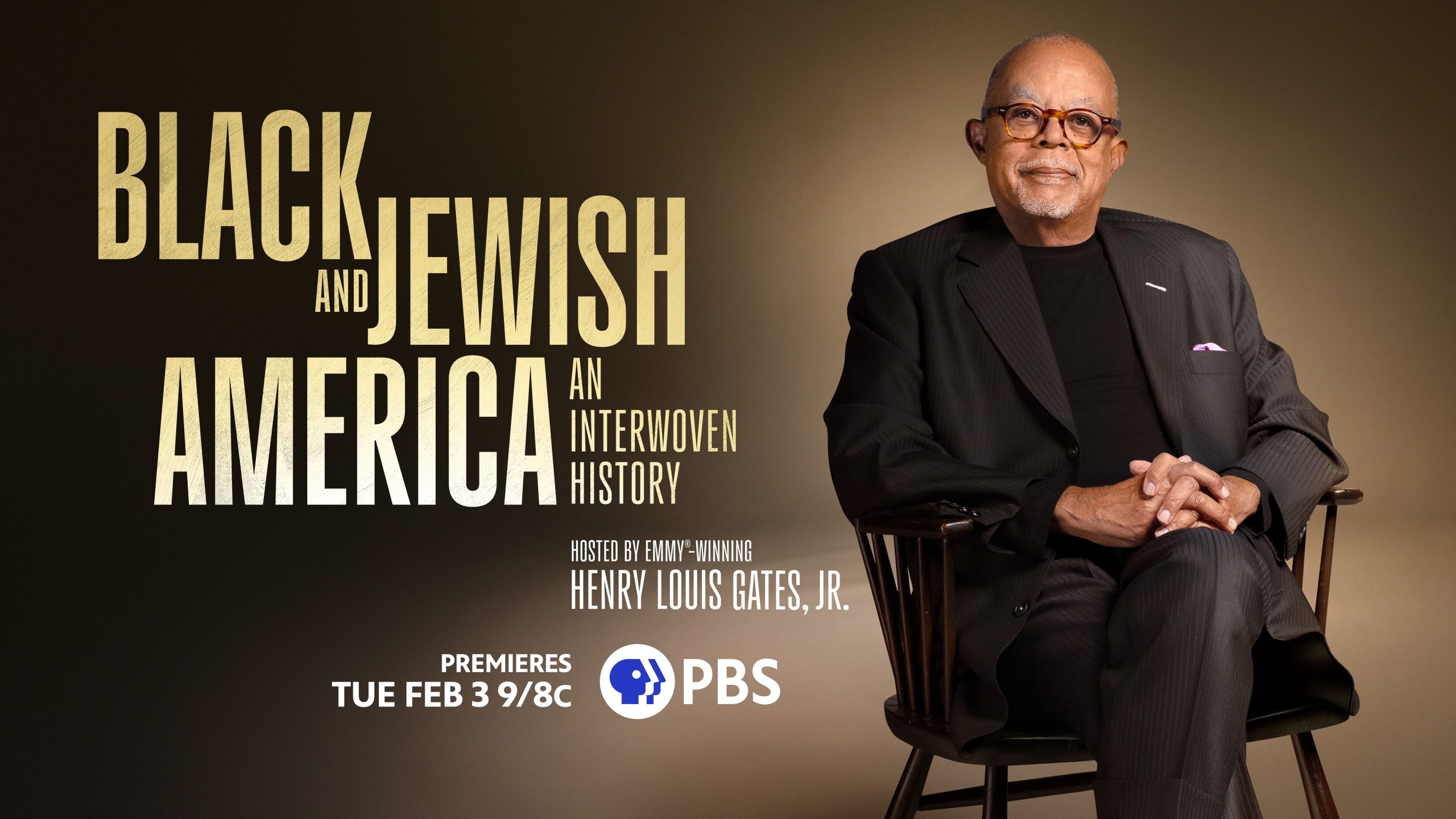
Washington Post features writer Travis M. Andrews spoke with Solzy at the Movies about his new book, Because He’s Jeff Goldblum.

Because He’s Jeff Goldblum is one of the more entertaining albeit unconventional biographies that I’ve read recently and maybe even ever. How did you first get interested in writing a book about Jeff Goldblum?
Travis M. Andrews: It’s so funny. I work at the Washington Post as a features writer and one day, we were kind of all hanging around. It was a Friday and it came out that Goldblum was releasing a jazz album. I didn’t even know he played jazz. There was also this giant statue of him in London. That was super odd. I remember at the time, I was kind of talking to my colleagues and I was like, I know Jeff Goldblum was super famous in the 90s. He was this big A-Lister. But like, why is he still so famous? Why is he still so ubiquitous? Why are people hanging on to him? All my colleagues—almost at the same time—were like, because he’s Jeff Goldblum, like that should be self-evident.
My editor, as editors are want to do, was like, well, Travis, if you’re so interested in this question, why don’t you write a piece? So I did. I started looking into his movies and really kind of diving more and more in and I thought he was such a fascinating character, both Goldblum himself and his interesting and strange career, and then also as a cipher for kind of exploring the way that the internet has really changed fame and celebrity in the 21st century and allowed someone like him—and his contemporaries like Chris Walken or Bill Murray—to kind of remain sort of household names even when they’re not doing a lot of A-list movies and things like that.
Did you have a favorite anecdote from the interviews that you conducted?
Travis M. Andrews: Let’s see. There’s a few. Probably my favorite anecdote—I spoke to a script supervisor on The Fly. In The Fly, there’s a baboon and baboons are not necessarily the nicest creatures. They’re huge. They have two-to-three-inch long fangs and apparently the particular baboon they had on set was attracted to the script supervisor, had romantic feelings for the supervisor, and would kind of go into heat every time they brought it on set in a bedroom. A baboon in heat is terrifying and not a great thing to have on a movie set. No one could calm it down. She said the baboon they would have to lock it in this other room, and they would just hear the baboon screeching and screaming. The only person who could get baboon to calm down was Jeff Goldblum, who would just kind of hold the baboon, which I just thought was the funniest, strangest but yet almost least surprising thing I ever heard about him. It’s shocking when you hear it and then you’re like, Oh, yeah, that makes sense. Of course. Of course. That’s how that would go.
What about a favorite film?
Travis M. Andrews: The weird part about Goldblum is how often he is in great films for just a few minutes. One critic, I think put it really well, Adam Nayman, when he said that Goldblum’s like a spice. He helps kind of the dish get better but you don’t want too much of him. So whenever people ask me this question, I have trouble with it because there aren’t many movies that consider Goldblum movies. I think the obvious ones—Jurassic Park has a special place in my heart. But one that I always mentioned is Joan Micklin Silver’s Between the Lines from 1977. It was one of his early movies, and it’s about an alt-weekly and he plays his hottie music critic. You can kind of see the Goldblum he’s gonna become but he hasn’t kind of become the persona yet so he’s still acting. The film is just wonderful and his role in it albeit small kind of just gives kind of a little bit of foreshadowing of who he’ll become and I recommend everyone check that movie out. (Note: The film is currently available through the Cohen Media Channel.)
I think Jurassic Park is among one of my most watched films during the pandemic.
Travis M. Andrews: Oh yeah. Was is it just during the pandemic or before as well?
Oh, it’s one of my all time favorite films. I’ll re angle this. (The interview was conducted over Zoom and I have a Jurassic Park poster on my wall.)
Travis M. Andrews: Nice! I mean, it’s a perfect movie. Everything about it is just so perfect. I so badly wish I had been able to see it when it came out. I was, I don’t know, six at the time. But the people who spoke to—just the fans of the movie—who got to see it on the big screen when it came out and how shocking it was to see this—that would have been really exciting because it holds up so well today. You would never believe it was made when it was made. I think even when you watch the new Jurassic Parks, you watch that original and it kind of almost looks realer somehow.
I saw it on the big screen back in 1993. First, I ordered it on VHS, then upgraded to Blu-ray, and then naturally upgraded to 4K Ultra HD. If there’s something that comes out after 4K, I’m gonna get that, too!
Travis M. Andrews: Have you figured out what Goldblum’s tattoo in it is? Because that’s the one thing that I never found out. I’m so curious still.
I would have to watch it again.
Travis M. Andrews: You can barely see it. It’s on his inner arm and it clearly has a tattoo but I don’t know what it is. I’ve read so many theories.
Back in 2018, the Chicago Critics Film Festival did a 25th anniversary screening at the Music Box Theatre so it was really nice to get to see it on the big screen again.
Travis M. Andrews: That’s awesome. I would love that!
What was the most surprising thing you learned in writing the book?
Travis M. Andrews: This will sound so banal but it’s true—I think the most surprising thing I learned was just how much people really, really like and respect this guy. That sounds maybe obvious but normally, when you’re reading a celebrity, particularly when you’re interviewing people who knew him over a 50-year span at different points in his life, you’ll get different impressions. Some people won’t like the guy or the person at question. Some people will gush and you can tell it’s fake. With Goldblum, everyone from the famous directors he’s worked with to someone working the craft services table said the same thing: that he takes the time to get to know everybody, he’s really interested in people’s lives, and that he really seems to care. I just found that so refreshing in today’s world. I think that times are tough and to know that someone can rise to that level and still kind of be a good person—I don’t know—like I said, sounds banal but that just excited me to a degree that I didn’t really expect.
I loved the use of footnotes. Of any book I’ve read outside of my own that I published several years ago, it’s the most hysterical that I’ve seen by far.
Travis M. Andrews: Thank you so much. Yeah, the footnote thing was interesting. I kind of sprung that on my editor. I hadn’t mentioned the footnotes or the interludes. I just kind of was like going along and kept having these little aside thoughts in my head. I was like, well, she can just cut them if she doesn’t like them. No skin off anyone’s back, I might as well try. And I did. And then she really liked them, thankfully. She didn’t throw the manuscript at the window.
While Jeff himself didn’t participate in the book, would his participation have changed the direction?
Travis M. Andrews: I think about this a lot. And I think, yes. I think it’s inevitable. In one way, I’m kind of glad he didn’t participate because I was more interested in kind of the perception of Goldblum and how he’s viewed than necessarily his biographical details, if he grew up on the street or that street. I mean, that’s in the book but it was what I was less interested in. I think it’s what a reader is less interested in.
One thing I’ve learned just from doing celebrity journalism for years is that when the person is involved, it’s not that they can force it to go a certain way but there’s an awful lot of pressure. There’s an awful lot of people who get involved—publicists, etc.—who are trying to kind of craft the narrative they want. I think the footnotes and stuff like that, maybe they would have been like, no, we’re not going to be involved if it kind of is this humor element, if it kind of has this off-the-wall element.
I would love to speak to him. I would have liked to interview him but I do think that involvement would have changed. I think it would have made it a more conventional project, which I’m sure some people would have rather but it wasn’t what I would want it to do.
I got to talk to him in 2019 for all of five seconds during Wizard World Chicago 2019.
Travis M. Andrews: How was it?
It was good. I mean, my uncle’s cousin did visual effects on Jurassic Park.
Travis M. Andrews: Oh, wow.
If I recall correctly, Jeff introduced himself and asked for my name, I think and then I’d also mentioned that my uncle’s cousin had worked on visual effects for Jurassic Park and he said to tell him hi.
Travis M. Andrews: That’s awesome. I love it.
That’s not something I would have given much thought about until reading the book and seeing how he takes the time to get to know the people on set.
Travis M. Andrews: Absolutely. One of my favorite little stories that’s in the book is—I think it was Chris Bradley, who directed Pittsburgh, told me they were in Times Square once and a fan came up and was like, “Jeff Goldblum, I’m such a huge fan. Can we take a quick photo? Would you mind?” And Goldblum’s like, “No, let’s take a slow one. Let’s take our time. Get it right.” It just like seems like it sums him up so well. (Page 12 in the book.)
Yeah, I would agree. I’d rather have that photo that looks good rather than the one that’s rushed.
Travis M. Andrews: Exactly.
What do you hope people take away from reading the book?
Travis M. Andrews: I think what I’d like them to take away, kind of—on the intellectual side, I hope that people gain some insight into how fame has changed in the 21st century, and how the internet really has changed so many facets for life including that one. The emotional thing I hope people take away is that you can follow your muse, you can be successful, you can reach these heights, and still be decent, and that that’s better. There’s still kind of some hope there. I don’t know. Again, I was writing this during a very dark time in American history and just finding that hope and that joy made me happy. I wrote a book that I hope would make other people happy, entertain them, give them a couple laughs, and give them a little bit of hope.





